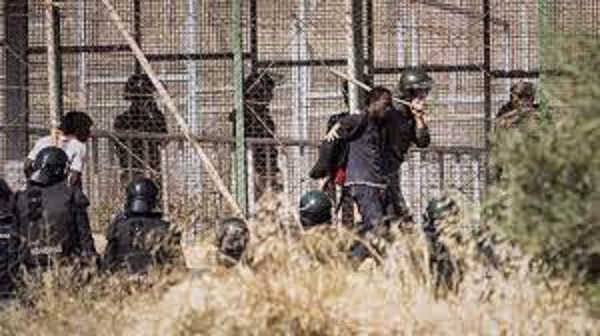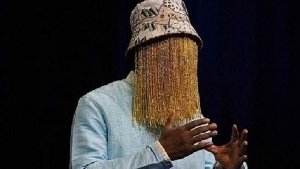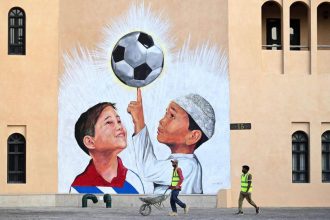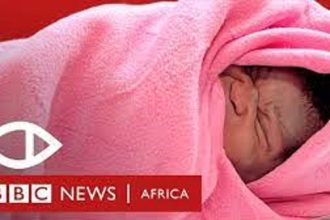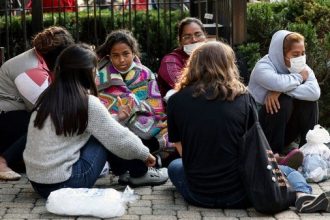On 24 June 2022, disturbing videos started circulating online, showing violent clashes between African migrants and Moroccan border guards. The footage was filmed on a small piece of land where Morocco meets Spain – a gateway into Europe. These videos revealed shocking evidence of migrants being restrained and severely beaten. Twenty-four people died in the incident, and dozens more are still missing.
For months, BBC World Service’s award-winning investigative strand, BBC Africa Eye, has been searching for the truth. In the documentary Death on the Border, viewers are taken through the events of that deadly day in forensic detail. The BBC Africa Eye team verified and geolocated dozens of videos posted on social media and obtained from sources on the ground.
The film retraces the steps taken by migrants on the morning of 24 June 2022, when an estimated 2,000 people descended on the Moroccan border post, trying to storm the fence and cross into the enclave of Melilla, Spain.
Throughout the film, survivors share their testimonies, giving the most comprehensive account yet of what happened. They reveal how Moroccan border forces drove the group into an enclosed courtyard inside the border post, then blocked their path out. Videos show how the Moroccan border forces continued to throw teargas and smoke bombs into the enclosed space where migrants were trapped. This led to a deadly crush of people.
One anonymous survivor describes how hundreds of migrants were kept on the ground for several hours, with injured and dead people among them. He claims they received no medical care and security forces stopped medics from helping the injured.
While most migrants were detained inside the border post, hundreds did make it across into Spanish controlled territory. The investigation by BBC Africa Eye reveals new evidence of ‘pushbacks’ by Spanish security forces – a practice where migrants are taken back across the border, without being given the opportunity to claim asylum. One migrant told Africa Eye he was returned to Moroccan authorities who beat him so badly he lost consciousness for several hours.
Survivors said security forces placed them on buses and drove them to cities across Morocco, far from the border. During that journey, at least one injured migrant died. His name was Abdelnasir, and his brother reveals the impact on his family in Sudan. He said: “My mother didn’t accept the news at first when I told her. We were waiting for his body…we managed to ask the people that were with him to tell us what happened, but we couldn’t get any details.”
Several sources allege that the bodies of dozens of migrants are still being held in a morgue in Nador, the Moroccan city closest to Melilla.
Omar Naji, Vice-President of the Moroccan Association for Human Rights told BBC Africa Eye that they witnessed authorities in the cemetery of Nador digging 21 graves. He said: “The authorities wanted to bury the bodies without making the necessary investigations and without identifying them.”
The Moroccan government declined BBC Africa Eye’s request for an interview and did not respond to the allegations made in this film. The Moroccan Ministry of the Interior has publicly maintained that its security forces responded in line with legal protocols, and that all migrants received necessary medical assistance and care. They claim the huge group of migrants were armed with sticks and sharp tools and were extremely violent.
Both Morocco and Spain have since faced questions about the tragedy, and both have begun internal investigations into what happened that day. But to date, neither have released any CCTV footage or taken responsibility for the deaths.
One of the anonymous survivors in the film appeals to authorities to disclose the evidence they have. He says: “The whole border area in Melilla is covered by surveillance cameras, there are cameras along almost the entire fence and in the area where we were trapped and some of us died.”
The Spanish Ministry of Interior denied the allegations in the film, stating: “Any rejections at the border were made according to Spanish law, endorsed by the European Court of Human Rights. The claim that ‘300 migrants were forced back to Morocco from Spanish territory’ is absolutely false.” The statement added: “All CCTV recordings have been handed over to the Spanish judiciary and Ombudsman as part of their investigations.”
However, in October, the Spanish Ombudsman released the initial findings of its investigation, stating that 470 migrants were pushed back across the border, without considering the legal provisions, and that the Ministry of the Interior had not shared all available CCTV with investigators.
Death on the Border also explores the wider question of how tensions between Morocco and Spain on migration control could have contributed to the events on the 24th of June.

